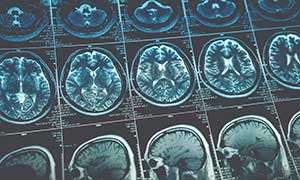To help lead the next major wave in medical diagnosis and treatment, the University of Washington is planning a molecular imaging center to bring individualized, precision medicine to patients.
Organizers say the Washington Molecular Imaging and Therapy (WAMIT) Center will be nearly one-of-a-kind, thanks to its link between state-of-the-art diagnostics and therapy and because it will focus on effective, usable technologies from the start of every project.
The UW held a symposium on Feb. 16, bringing leading researchers to campus to join in discussions shaping the new center. “One of the key points of the symposium was to work with our external speakers to help define challenges we must address in successfully launching the center,” said Professor of Bioengineering Matthew O’Donnell, the Frank and Julie Jungers Dean Emeritus, College of Engineering. “We had nine faculty working with the four external speakers the day after the symposium (Feb. 17) to identify the challenges and brainstorm on ways to coordinate our strengths to address these challenges.”
The center will feature projects tying together molecular imaging and molecular therapeutics. Although the center is still in the planning stage, potential themes include integrated imaging with drug/biologics delivery, image assessment and optimization of targeted therapeutics, and molecular-based non-invasive imaging for point-of-care pathology tests.
The guest researchers were Matthew Tirrell of the University of Chicago, Jason Lewis from Memorial Sloan Kettering Cancer Center, Chad Mirkin of Northwestern University and Gang Bao from Rice University.
The UW team includes bioengineering faculty O’Donnell, Mike Averkiou, Xiaohu Gao, Ruikang Wang and adjunct faculty Paul Kinahan (medicine/radiology); UW faculty Jonathan Liu (mechanical engineering); Thomas Matula (Applied Physics Laboratory); Lilo Pozzo (chemical engineering); and Robert Pierce (immunology at Fred Hutchinson Cancer Research Center).
The center is funded in part by a 2016 College of Engineering Strategic Research Initiatives Award.



